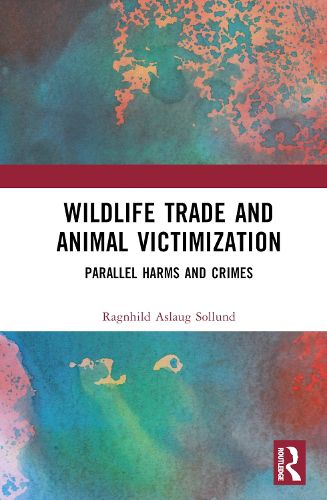Readings Newsletter
Become a Readings Member to make your shopping experience even easier.
Sign in or sign up for free!
You’re not far away from qualifying for FREE standard shipping within Australia
You’ve qualified for FREE standard shipping within Australia
The cart is loading…






This book examines the trade in nonhuman animals of endangered wild species. Wildlife trafficking is, after loss of habitat, the biggest threat to many animal species and biodiversity. This book draws on extensive empirical data from Norway to highlight the parallel legal and illegal markets, the motivation of traders, animal victimization, weaknesses of existing regulatory frameworks, and difficulties of legal enforcement. As a long-time signatory of the Convention on International Trade in Endangered Species of Wild Fauna and Flora, and a rich consumer country, Norway provides the perfect case for investigating the consequences of legalising or banning wildlife trade. The work applies a green, non speciesist theoretical perspective to analyse empirical data covering approximately 350 cases as well as qualitative interviews with law enforcement agencies and confiscation reports from Customs. The book will be an essential resource for researchers and academics in green criminology, global criminology, environmental law and environmental studies. It will also be of value to professionals working in wildlife and animal welfare policies and enforcement, such as governmental and non-governmental organizations.
$9.00 standard shipping within Australia
FREE standard shipping within Australia for orders over $100.00
Express & International shipping calculated at checkout
This book examines the trade in nonhuman animals of endangered wild species. Wildlife trafficking is, after loss of habitat, the biggest threat to many animal species and biodiversity. This book draws on extensive empirical data from Norway to highlight the parallel legal and illegal markets, the motivation of traders, animal victimization, weaknesses of existing regulatory frameworks, and difficulties of legal enforcement. As a long-time signatory of the Convention on International Trade in Endangered Species of Wild Fauna and Flora, and a rich consumer country, Norway provides the perfect case for investigating the consequences of legalising or banning wildlife trade. The work applies a green, non speciesist theoretical perspective to analyse empirical data covering approximately 350 cases as well as qualitative interviews with law enforcement agencies and confiscation reports from Customs. The book will be an essential resource for researchers and academics in green criminology, global criminology, environmental law and environmental studies. It will also be of value to professionals working in wildlife and animal welfare policies and enforcement, such as governmental and non-governmental organizations.